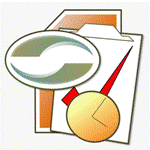About Ceptara
Chris' Recommended Reading
The Balanced Scorecard: Translating Strategy into Action, Kaplan & Norton
Good directional book on how to create meaningful metrics and how to make them part of managing to the business objectives
Strategy Maps: Converting Intangible Assets into Tangible Outcomes, Kaplan & Norton
Good reference for capturing corporate strategies and relating to important measurement indicators.
The E-Myth Revisited: Why Most Small Businesses Don't Work and What to Do About It, Michael E. Gerber
Really excellent reference for anyone starting a business or focusing on scaling their business. Gerber does a nice job of talking about a solid execution foundation in terms understandable to small business owners who may not have MBAs or didn't start their careers in large corporations.
The Six Sigma Way: How GE, Motorola, and Other Top Companies are Honing Their Performance, Pande, Nueman, and Cavanagh
A good introduction to Six Sigma techniques, fairly general but comprehensive.
Power of Six Sigma, Subir Chowdhury
A story approach to Six Sigma - good primer if you know nothing about Six Sigma.
CSSBB Primer, Quality Council of Indiana, Quality Council of Indiana
A text for preparing for the Six Sigma BlackBelt Certification exam, comprehensive text on all Six Sigma techniques and references for additional text books for any given method, such as SPC, DOE, DFSS, etc
Juran's Quality Handbook, 5th Edition, Juran & Godfrey
An excellent reference text on how to use all of the TQM/Six Sigma techniques
Process Innovation: Reengineering Work Through Information Technology, Thomas H. Davenport
A good introduction to process centered organizations - answers what is continuous process improvement
Reengineering the Corporation: A Manifesto for Business Revolution, Hammer & Champy
Beyond Reengineering: How the Process-Centered Organization is Changing Our Work and Our Lives, Hammer
How to throw out what's been done before and approach process improvement from a green field perspective.
Reengineering Management: The Mandate for New Leadership, Champy
A review of how many reengineering projects fail without strong leadership support
The Goal: A Process of Ongoing Improvement, Eliyahu M. Goldratt
Introduces the Theory of Constraints through a fictional novel approach - good way to understanding how buffers and bottlenecks affect your overall process. Read my [Review].
It's Not Luck, Eliyahu M. Goldratt
A continuation of The Goal - uses the same novel technique
Theory of Constraints, Eliyahu M. Goldratt
Not a bad read - but I would recommend reading The Goal to get a better understanding of the Theory.
Managing Customer Value: Creating Quality and Service That Customers Can See, Bradley T. Gale
A great book on relating customer experience to what can be measured
Baldrige National Quality Program, US Government
An excellent reference on finding business excellence. Provides a framework for assessing how overall business gets done. A holistic view of Quality Excellence for Business, excellent assessment criteria to evaluate the state of a company's quality system
Built to Last: Successful Habits of Visionary Companies, Collins & Porras
The originating text on BHAG - Big Hairy Audacious Goals. How to create companies that last by aligning to goals cultivated thru great vision.
Good to Great: Why Some Companies Make the Leap... and Others Don't, Collins
A good study on what makes companies last. Comparing leading companies and finding what makes them enduring organizations. Introduces the concept of the flywheel.
The 7 Habits of Highly Effective People, Stephen R. Covey
Very excellent text on achieving personal excellence. A key dimension in finding what makes you tick and how to get the most out of yourself.
First Things First: To Live, to Love, to Learn, to Leave a Legacy, Covey, Merrill, & Merrill
A great way of aligning everyday tasks with what matters most.
The 8th Habit: From Effectiveness to Greatness, Stephen R. Covey
A good roadmap on aligning personal and organizational excellence and execution focus. Finding your voice and helping others find theirs.
Getting Things Done, The Art of Stress-Free Productivity, David Allen
Good reference on getting organized in your daily life and being specific about what you're working on in the next five minutes
The 4-Hour Work Week: Escape 9-5, Live Anywhere, and Join the New Rich, Timothy Ferriss
Very much enjoyed this book. It's a quick read, should take no more than a few hours. I read it when we were returning from a week in Florida, so I had escaping to the beach on my mind. Talks about some great ideas on how to set up your business to work on its own, consistent with Gerber's e-Myth book. And Ferriss covers outsourcing quite nicely as well.
The Lean Startup, Eric Ries
Interesting perspective on how to apply continuous improvement thinking to the creation process. Two key concepts that were interesting to me; 1) the MVP, minimum viable product - don't waste effort on product features that the customer is not willing to pay for. Get out your idea into a customer consumable form as soon as possible and then learn about what they want and are willing to pay for. The second concept is 'the pivot' - don't over focus on your idea if it is not making measureable progress, take what you've done and pivot as much of your expended work as possible to a new concept, market, customer, etc. that creates value for the customer and you.
The Power of HABIT: Why We Do What We Do in Life and in Business, Charles Duhigg
Connects some of the latest brain science to why its difficult to change our habits. It presents a 'habit cycle', i.e. Cue - Routine - Reward, in how we develop habits and how to break/change them. It also talks about the notion 'familiarity' - i.e. in order to modify our habits, we must do it in context of what we're used to.
Recent Updates
Microsoft Outlook Add-In

Focus on Your Life, Not Your Inbox
Achieve greater focus by shifting your attention from e-mail to accomplishing what matters most!
Company News
Stay up to date with our newsletter!


